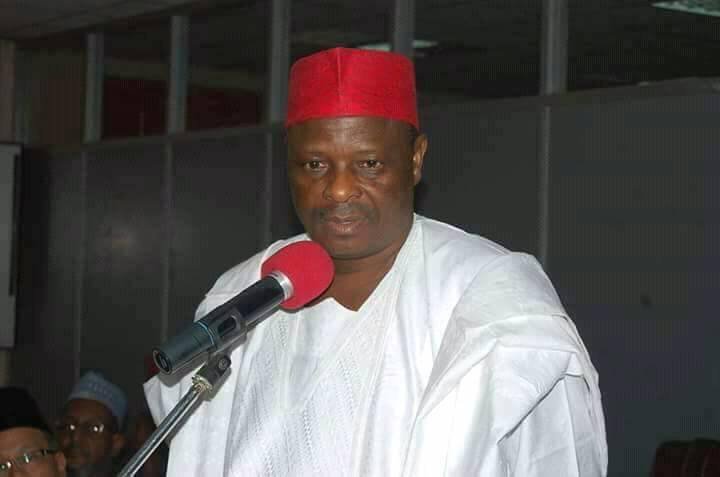The Academic Staff Union of Universities (ASUU) has cried out against the huge power bills paid by universities in the country, estimated at N275bn annually, following the recent increase in electricity tariffs.
Prof. Emmanuel Osodeke, the National President of ASUU, has advocated for per-unit billing after the university’s power cost increased by 300 percent, reaching N21.480 billion monthly.
In April 2024, the Nigerian Electricity Regulatory Commission (NERC) announced a 300 percent increase in the electricity tariff paid by Band A users, from N68/KWh to N225/KWh.
Band A includes universities, which provide clients with at least 20 hours of electricity per day.
However, many colleges have expressed concern about rising electricity rates as a result of the new regulation.
Electricity is crucial in universities since it is used in laboratories, libraries, and other critical applications. Prior to the tariff rise, all 274 institutions in Nigeria paid N5,252,000,000 per month, or N63,024,000,000 annually.
Following the increase, colleges now pay N21,480,000,000 per month and N257,760,000,000 annually.
According to the findings, the University of Lagos now spends N300 million on power, up from an average of N180 million in the past.
Osodeke, in an interview, insisted that the Federal Government must ensure fairness to all, citing the increased electricity tariffs, which had risen sharply.
He stressed that all users should be charged based on the actual units of electricity consumed, with a uniform rate, rather than being categorised into different bands.
Osodeke also berated the Band A classification for the universities, stating that “Electricity tariffs are a nationwide concern and not limited to universities alone. The idea of categorising consumers into bands such as Band A or Band B is flawed. Billing should be based on actual consumption, with a consistent per-unit rate for all users.
“If someone receives 14 hours of electricity, they naturally pay more because they use more, but automatically charging them more simply because they fall under Band A is illogical. This new system is terrible and unfair.”
Suggesting a way out, Osodeke stated, “We suggest that the rate should be equitable for everyone. People will pay more because they consume more energy, not because of arbitrary classifications. The system should be fair to all Nigerians, charging solely based on the actual electricity units consumed. Whether in universities, towns, or villages, everyone should pay the same rate per unit of energy consumed.”
However, the Committees of Pro-Chancellors and Vice-Chancellors of Nigerian Universities have advocated for a reduction in electricity costs for all 274 universities in Nigeria.
According to information released by CVCNU Secretary-General Prof. Yakubu Ochefu, the average monthly power cost for first-generation universities jumped from around N80 million to N300 million, while for second-generation universities, it increased from N50 million to N200 million.
He noted, “Electricity costs for first-generation tech/agric universities increased from N30m to N150m. First-generation state universities also saw an increase from N30m to N150m. Second-generation state universities (1999/2000) experienced the same hike, from N30m to N150m.
“First and second-generation private universities’ costs rose from N10m to N60m, and universities established by former President Goodluck Jonathan increased monthly from N20m to N100m.”
Ochefu maintained that the VCs committee had written a letter to the Federal Government in this regard and that the matter was now in the hands of the pro-chancellors, claiming that if the government did not grant the universities a concession, students would be forced to pay an additional N80,000 for electricity.
“The vice-chancellors have done their part. Since the pro-chancellors have been inaugurated, they will continue from where the vice-chancellors left off because it’s a fundamental funding issue. For example, we reported that universities used to pay N1.2bn to N1.3bn annually for power.
“With the new tariff, that figure has risen to nearly N4b per annum. How are universities expected to find that kind of money? If you calculate it, that’s between N250m and N300m a month. Compare this to the 2024 budget, where the overheads for power, water, and overhead costs were less than N150m per annum, despite a previous budget of N1.2bn per annum. This depicts a shortfall of almost N900m.
“If the Federal Government does not assist, these costs will likely be transferred to students. For instance, if universities were to pass on these electricity costs to students, each student would pay an additional $80,000 per annum on top of their tuition fees. Is that what the Federal Government wants?” he asked.
Mrs. Oluwayemisi Thomas-Onashile, the coordinator of CIPR at Lagos State University, stated that the university used to spend an average of N30 million per month when the cost was N68/kWh. With the new cost of N209/kWh, the average monthly bill has increased to N92 million.
Dr. Joshua Suleiman of Babcock University revealed that their monthly electricity bill ranged between N175 million and N321 million, compared to N94,011,193 and N118,477,338 last year.
Prof. Lilian Salami, Vice-Chancellor of the University of Benin in Edo State, revealed that the electrical bills for their two campuses were calculated separately, but when power was switched off in May after 19 days of delivery, the bill was N150 million.
Salami stated, “The University of Benin has two campuses: Ekehuan, where the university was established 54 years ago, and Ugbowo, the main campus. Previously, the university paid approximately N80m monthly to the Benin Electricity Distribution Company.
“However, with the tariff increase of over 300 percent, the Ugbowo campus was classified under Band A, while Ekehuan was not, due to its inconsistent electricity supply. The bill for April was about N280m, despite students being on recess for 10 days. In May, BEDC disconnected supply after about 19 days and issued a bill of N150m. Consequently, the bill has surged from around N80m to N300m.”
The Committee of Pro-Chancellors of State-Owned Institutions and the Committee of Vice-Chancellors both stated that the law was costly and unsustainable for institutions.
Senator Joshua Lidani, Chairman of the Committee of Pro-Chancellors of State-Owned, told the press that there had been instances of several institutions’ electricity being disconnected due to excessive costs.
He called it disturbing, noting that it would put more strain on colleges’ finances and operations.
Lidani added, “It is an ill wind that will do no good to the universities in the country, especially state-owned institutions already battling several challenges, notably funding and numerous other issues. We appeal to NERC and the various DISCOs not to hike the cost of electricity for universities but rather to grant them discounts or concessionary rates.
“We are alarmed by reports that some universities have had their electricity disconnected due to huge bills. This will only overburden the fragile state of university finances and may grind down their activities.”
Prof. Deji Omole, Pro-Chancellor of Ladoke Akintola University of Technology, voiced concern that the high energy tariffs would have a substantial impact on universities, stressing that the combination of chronic underfunding and increasing tariffs would adversely harm the institutions.
He argued, “We don’t manufacture anything apart from knowledge, and we can’t increase prices except by making students pay more, which is not ideal. It will be counterproductive, adding a burden to an already stressed system.
“The Federal Government should withdraw the plan and step down the additional tariffs, granting special concessions so we can carry out our research and make our laboratories functional. The increased tariffs will affect smooth operations.
“We implore the government not to implement these changes as they will be counterproductive. We don’t want the fragile peace in our universities to be jeopardised due to increased electricity tariffs.”
Omole added, “There is a lot of agitation, and we appeal to the government to understand the university system. No meaningful research will be carried out if universities cannot pay. There should be waivers on some of these bills.”











